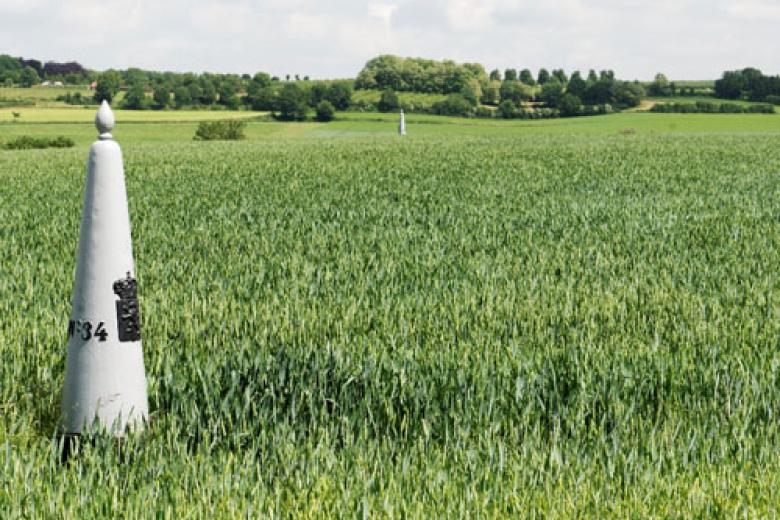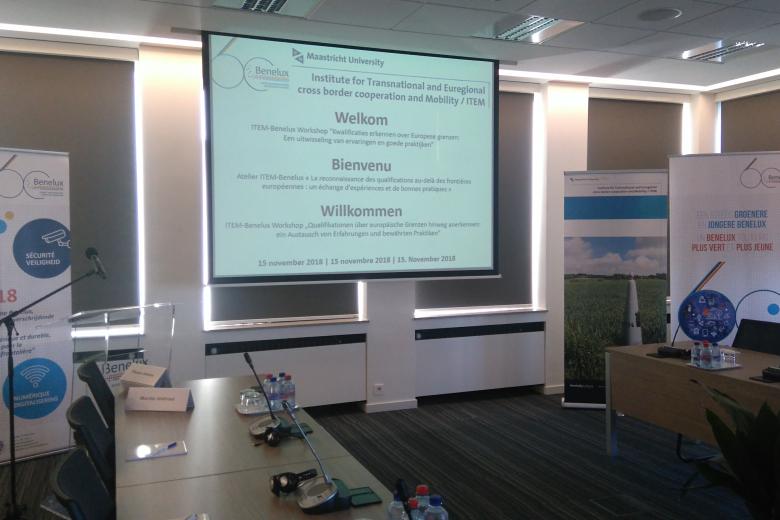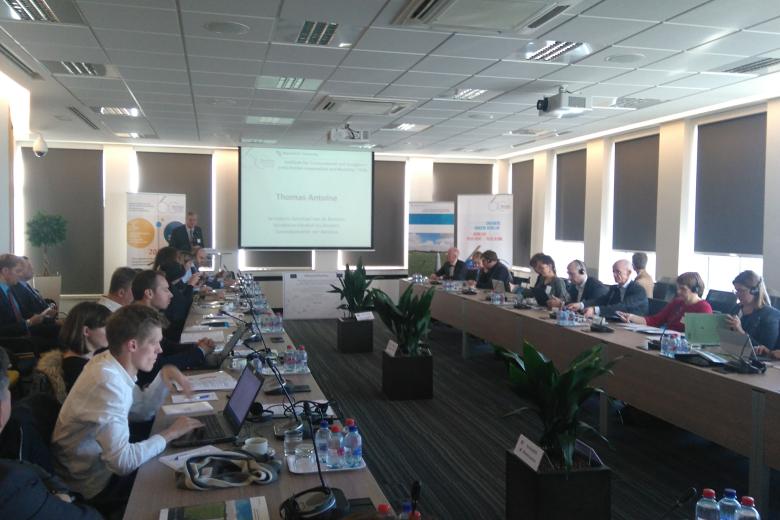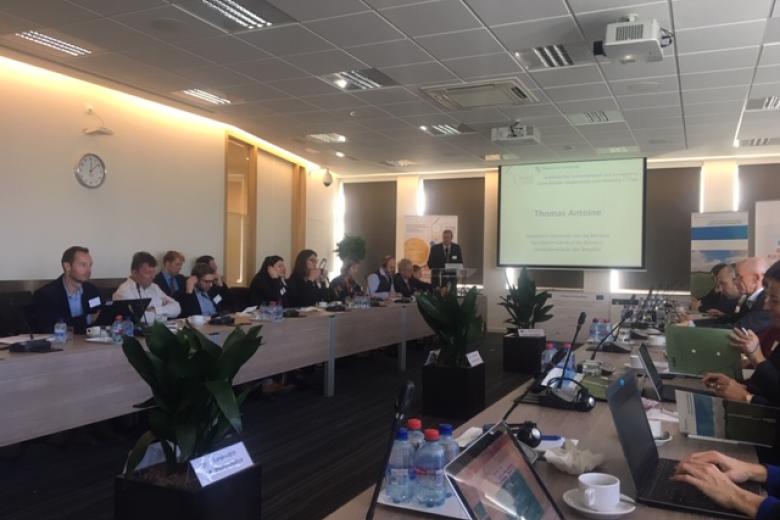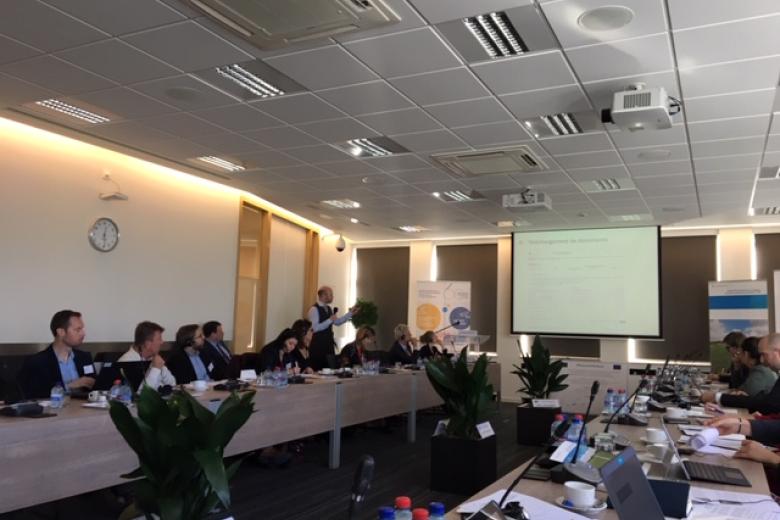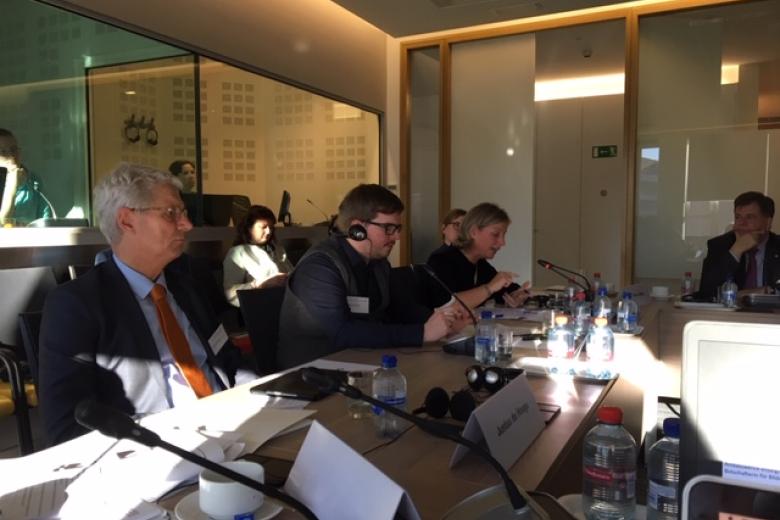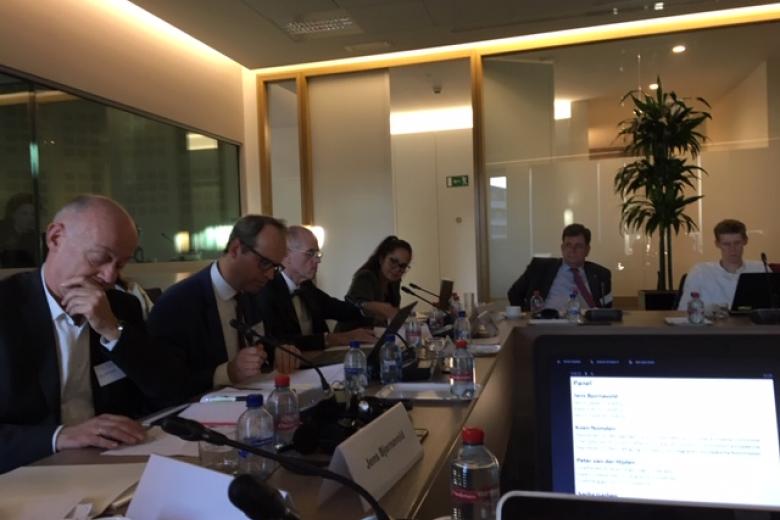Successful ITEM-Benelux Workshop on qualification recognition in Europe
On 15 November 2018, the ITEM Benelux Workshop "Recognising qualifications across European borders: an exchange of experiences and good practices" took place at the Benelux Secretariat General in Brussels. The workshop brought together different stakeholders at the regional, national and European levels.
The workshop, jointly organised by ITEM and the Benelux, focused on how qualifications are recognised in the EU. The objective of the day was to analyse recognition and transparency in different regional and institutional contexts. Two panels focused on challenges and good practices in the Benelux-Germany region and in the EU as a whole. During the panels initiatives such as the German platform "Anerkennung-in-deutschland.de", Europass and the European Qualifications Framework were discussed. Through presentations, participants were introduced to, among others, Swiss recognition practice and the current European Commission initiative for automatic recognition. During the workshop, the B-solutions project to develop roadmaps and fact sheets for the recognition of highly demanded professions was also presented.
During the workshop it became clear that cross-border work has indeed become easier over the years. In addition, there is more cooperation which, among other things, lowers thresholds for citizens and facilitates recognition procedures. Despite all efforts and initiatives aimed at achieving a positive recognition situation, there is still room for improvement. Existing challenges arise from differences in the implementation of European instruments. In addition, despite political support, recognition sometimes proves difficult to manage "on the ground". Where much has already been achieved to improve recognition in the field of higher education, more attention should be paid to vocational education. Finally, increased cooperation and awareness play a central role in improving recognition procedures.
Also read
-
Provincial elections from a cross-border perspective
On Wednesday 15 March 2023, there will be elections in the Netherlands. We will then vote for the Provincial Council and the District Water Board. Seven of the 12 Dutch provinces border a neighbouring country. Cross-border cooperation and special attention for border regions is therefore extra...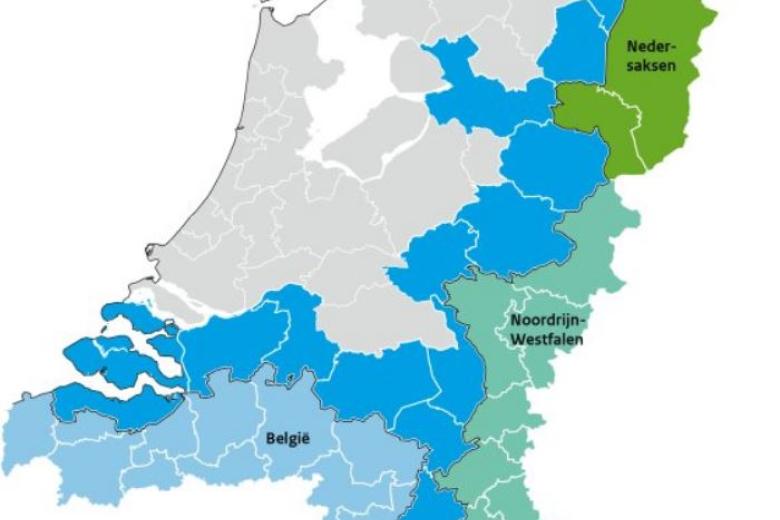
-
Recap ITEM Annual Conference 2021: Empowering border regions - More than ever?
The importance of cross-border cooperation manifests itself more than ever during the coronapandemic. Multi-level governance is the foundation for taking the next steps; looking for each other and perpetuating relationships at all levels, in administration, politics and practice. This became clear...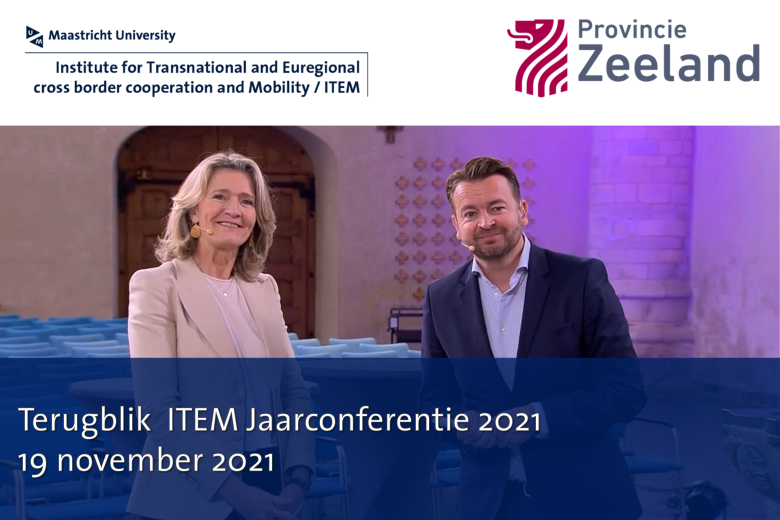
-
Working from home will disadvantage cross-border workers unless rules are changed
Unless the EU rules and tax treaties are amended, some cross-border workers will soon have to pay tax in two countries: in their country of residence for hours spent working from home, and in the country in which they work for hours spent in the office. Since COVID-19 has made working from home often...